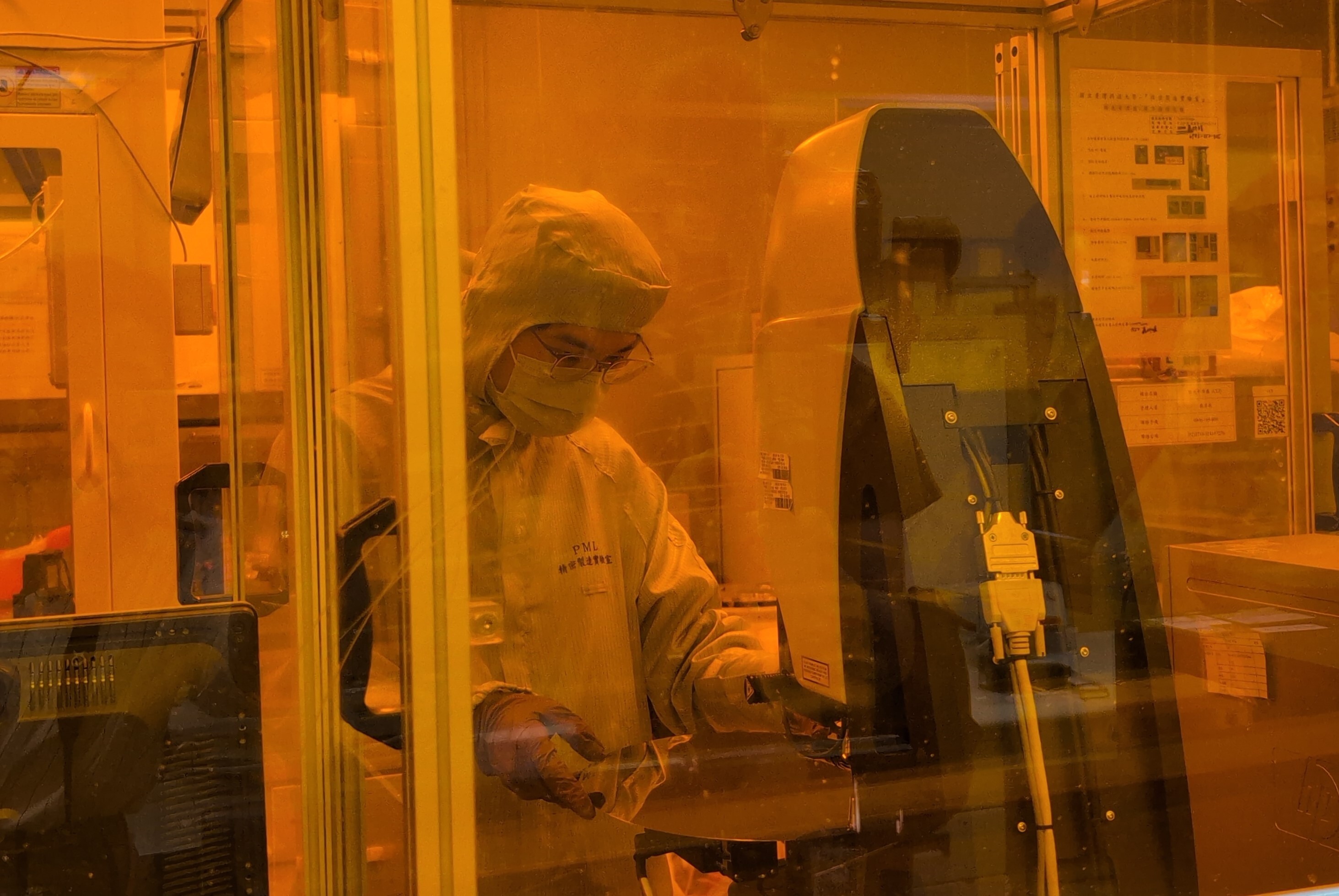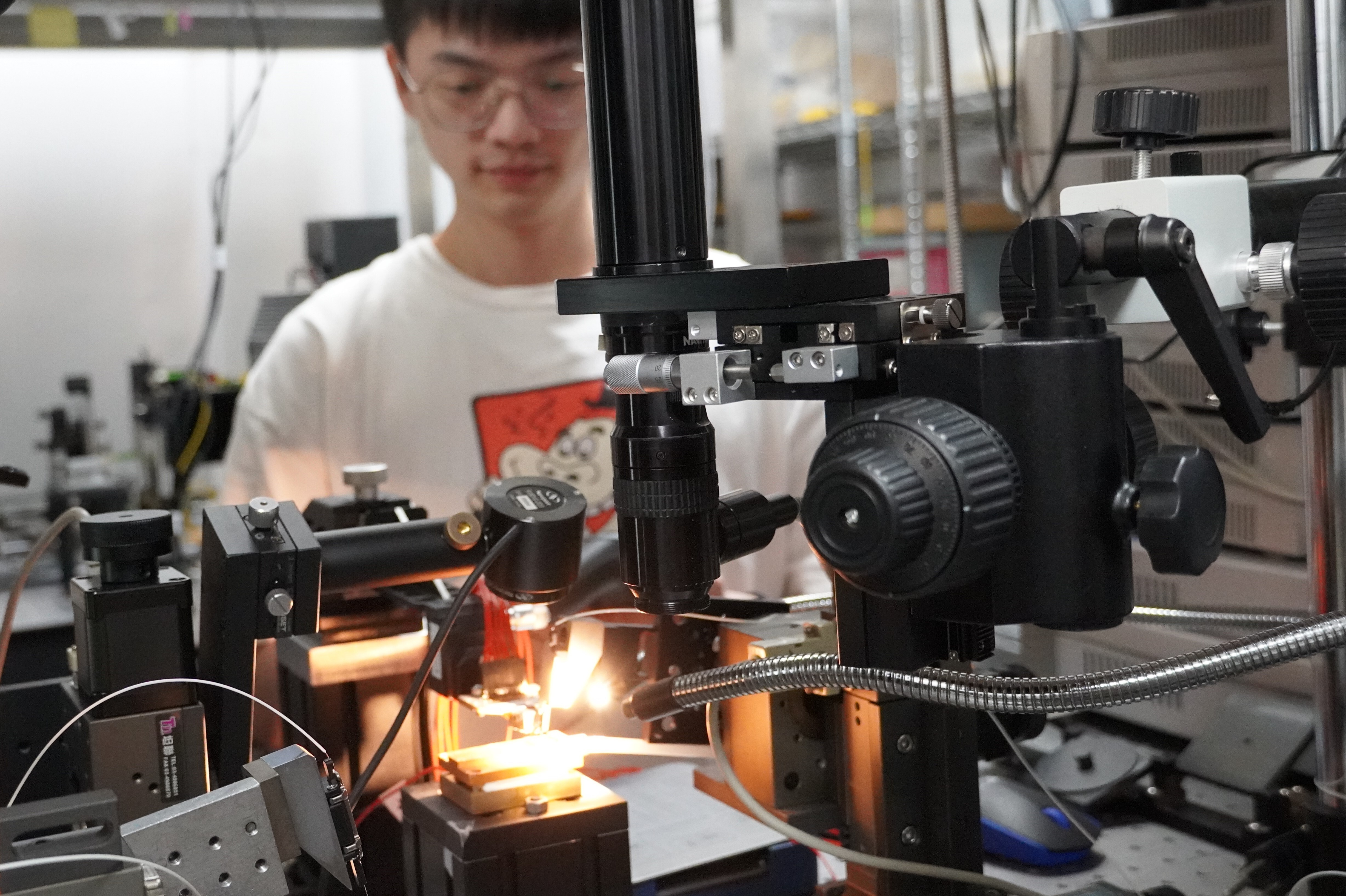Taiwan Tech launches Graduate Institute of Advanced Semiconductor Technology to advance silicon photonics and packaging [ 27 Dec 2024]
Taiwan Tech Advances Semiconductor Education and Research
To address the growing demand for semiconductor talent, Taiwan Tech launched the Graduate Institute of Advanced Semiconductor Technology in 2024. The institute focuses on cutting-edge areas like silicon photonics, compound semiconductor materials, and advanced packaging. Leveraging support from the National Science Council’s Crystal Innovation Program, Taiwan Tech will establsih the Semiconductor Innovation and Application Research Center, equipped with state-of-the-art silicon photonics measurement and packaging tools on its new its Hwa Hsia campus. This initiative fosters hands-on learning and strengthens industry-academia collaboration, preparing students for the rapidly evolving semiconductor sector.

Taiwan Tech students use semiconductor surface inspection equipment for wafer quality testing
Silicon Photonics: The Next Frontier
Taiwan Tech’s research emphasizes silicon photonics, a groundbreaking technology that combines optics and electronics to boost data transmission speeds while reducing energy consumption. Applications span AI, machine learning, 6G communication, and high-performance computing, making it a focus for global tech leaders. President Jia-Yush Yen stressed the need for talent to match industry advancements, stating, “Taiwan Tech must carve out its own space!” The Director of the new institute, Professor Shih-Hsiang Hsu, points out that silicon photonis is a new technology which has applications in communication (6G), data transmission, advancing AI, machine learning, and high-performance computing.

Taiwan Tech students operate a fiber-optic optical coherence tomography (OCT) system to inspect defects on chips, such as dents, micro-cracks, and voids.
International Cooperation and Innovation at the Hwahsia Campus
The institute plans to admit 36 master’s and 5 doctoral students annually, starting international student enrollment in 2025. Industry experts will provide practical insights, bridging academia and industry to cultivate globally competitive professionals. Taiwan Tech's new Hwa Hsia campus will host the Semiconductor Innovation and Application Research Center, equipped with silicon photonics tools from the Crystal Innovation Program. These facilities enable teaching, research, and industry collaboration for taiwan tech faculty and students,and the equipment will be accessible through the through the Taiwan Semiconductor Research Institute (TSRI) equipment-sharing platform for teams from academia, industry, and research institutions across Taiwan.

A student demonstrates the beam steering function in a LiDAR system using a silicon photonics chip, which can be applied to improve the computational efficiency of robot or vehicle navigation and obstacle avoidance.
Driving Taiwan’s Semiconductor Leadership
By integrating advanced research resources and fostering innovation, Taiwan Tech aims to strengthen Taiwan’s global position in semiconductor manufacturing. The university is committed to producing professionals with practical expertise and innovative capabilities, ensuring a robust future for the industry.




